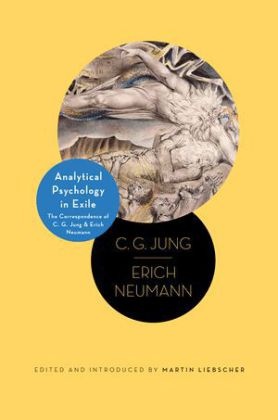Ulteriori informazioni
Zusatztext " Analytical Psychology in Exile serves as a contribution to the challenge of creating tolerance and understanding for otherness and difference in our own time, and it makes one impatient for additional volumes in the Philemon Series to appear." ---Paul Bishop, Isis Informationen zum Autor Martin Liebscher is senior research fellow in German and honorary senior lecturer in psychology at University College London. His books include Thinking the Unconscious: Nineteenth-Century German Thought . Heather McCartney is a Jungian analytical psychotherapist in private practice. Klappentext C. G. Jung and Erich Neumann first met in 1933! at a seminar Jung was conducting in Berlin. Jung was fifty-seven years old and internationally acclaimed for his own brand of psychotherapy. Neumann! twenty-eight! was a psychotherapist in training. The two men struck up a correspondence that would continue until Neumann's death in 1960. A lifelong Zionist! Neumann fled Nazi Germany with his family and settled in Palestine in 1934! where he would become the founding father of analytical psychology in the future state of Israel. Zusammenfassung Two giants of twentieth-century psychology in dialogue C. G. Jung and Erich Neumann first met in 1933, at a seminar Jung was conducting in Berlin. Jung was fifty-seven years old and internationally acclaimed for his own brand of psychotherapy. Neumann, twenty-eight, had just finished his studies in medicine. The two men struck up a correspondence that would continue until Neumann's death in 1960. A lifelong Zionist, Neumann fled Nazi Germany with his family and settled in Palestine in 1934, where he would become the founding father of analytical psychology in the future state of Israel. Presented here in English for the first time are letters that provide a rare look at the development of Jung’s psychological theories from the 1930s onward as well as the emerging self-confidence of another towering twentieth-century intellectual who was often described as Jung’s most talented student. Neumann was one of the few correspondence partners of Jung’s who was able to challenge him intellectually and personally. These letters shed light on not only Jung’s political attitude toward Nazi Germany, his alleged anti-Semitism, and his psychological theory of fascism, but also his understanding of Jewish psychology and mysticism. They affirm Neumann’s importance as a leading psychologist of his time and paint a fascinating picture of the psychological impact of immigration on the German Jewish intellectuals who settled in Palestine and helped to create the state of Israel. Featuring Martin Liebscher’s authoritative introduction and annotations, this volume documents one of the most important intellectual relationships in the history of analytical psychology. ...

